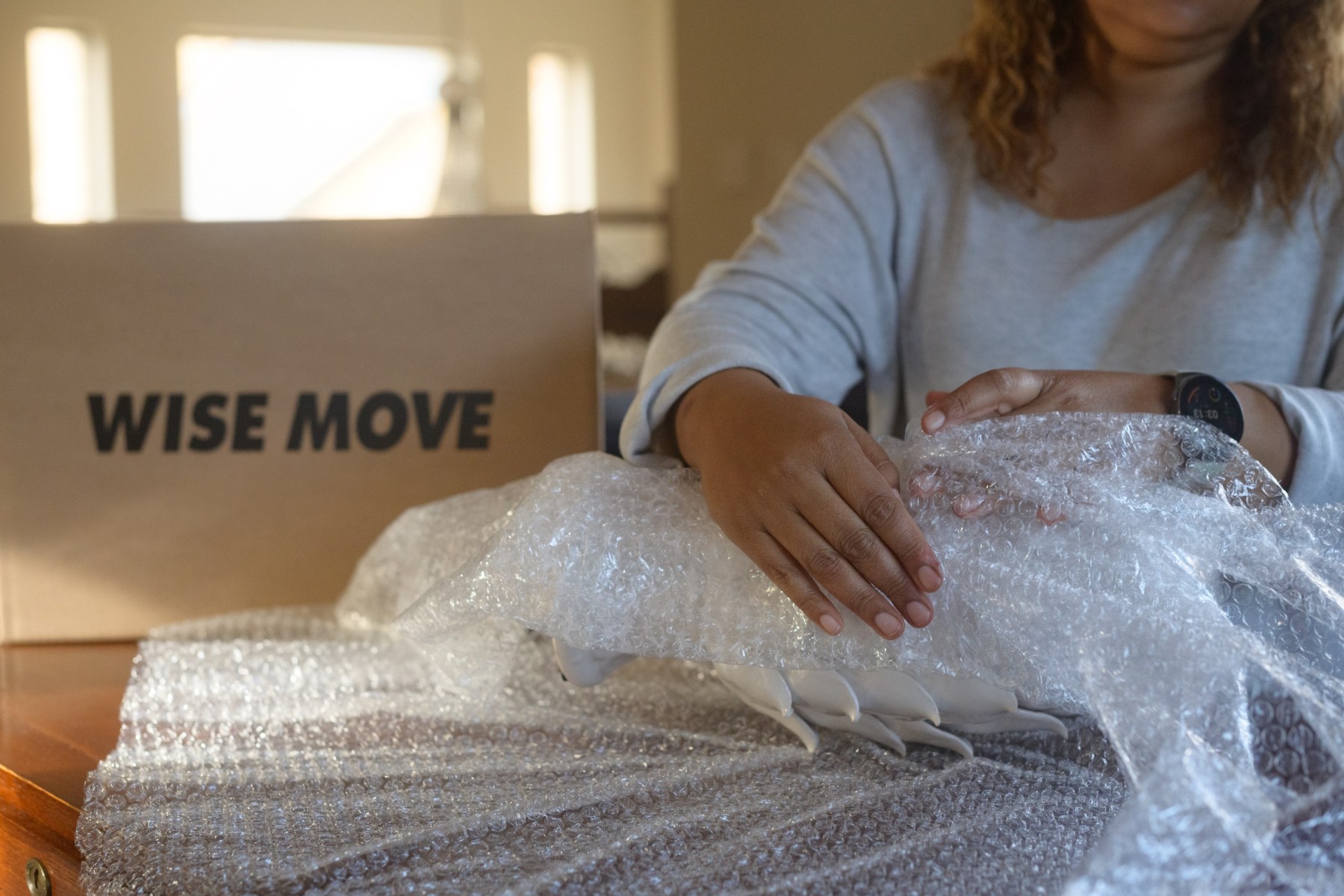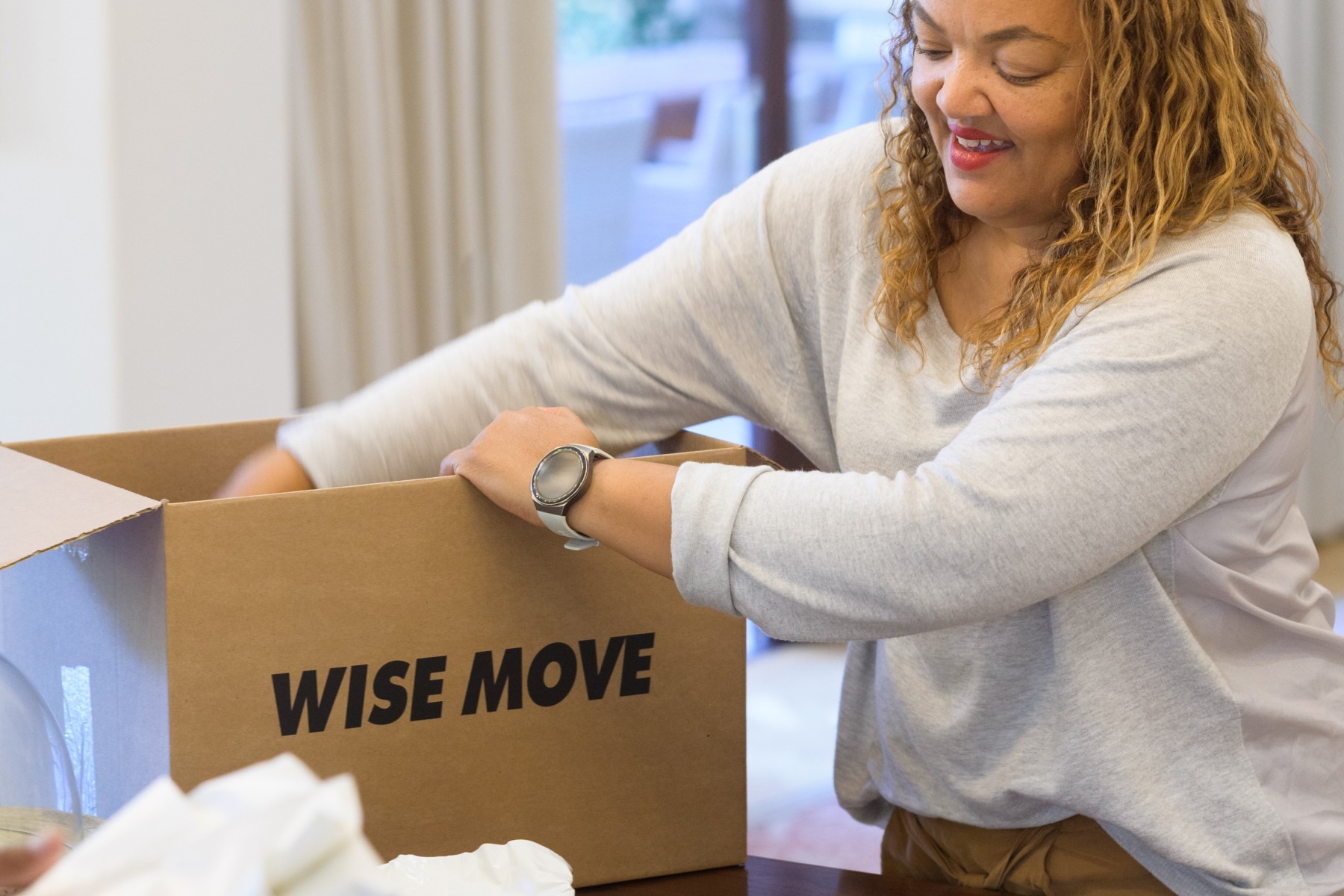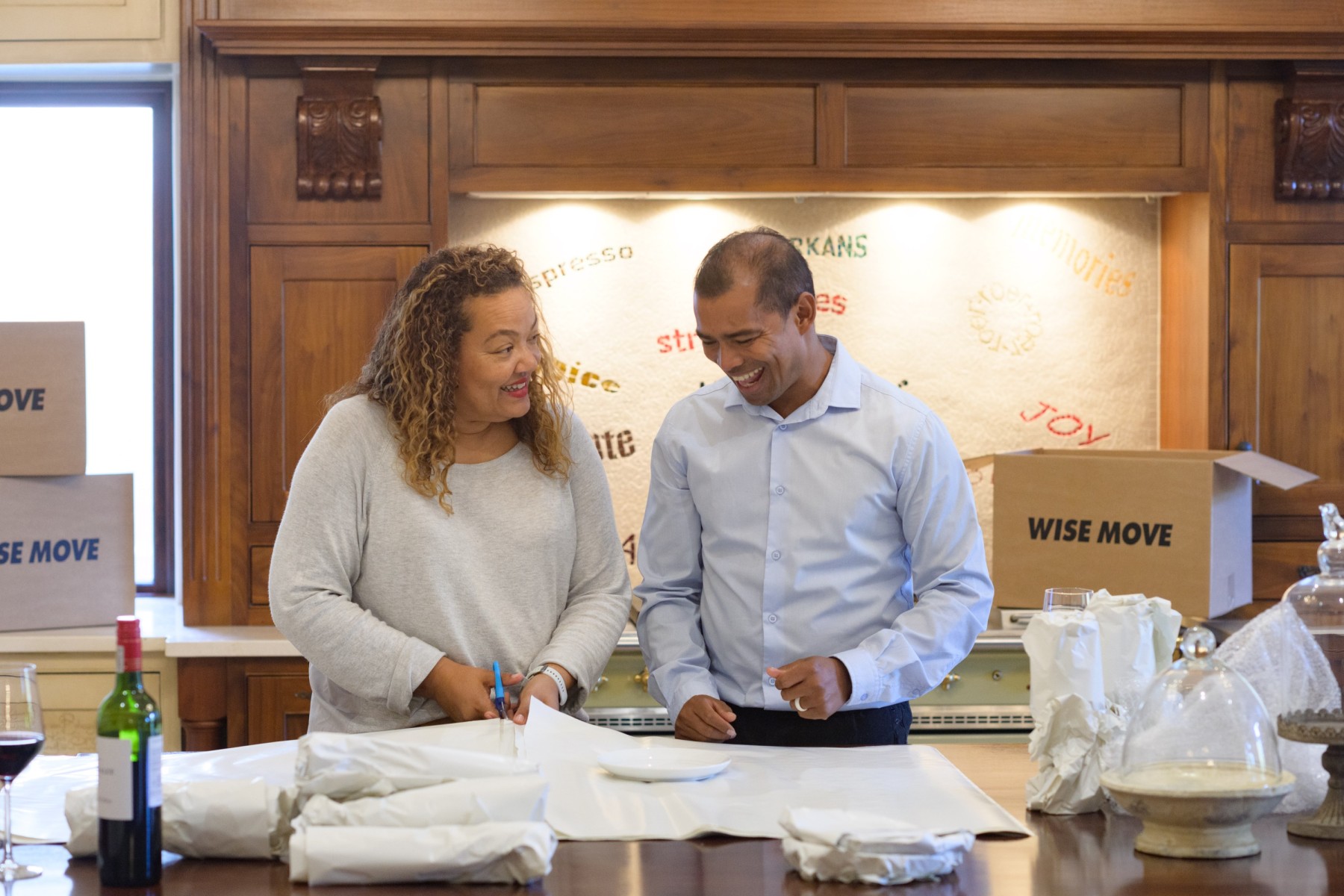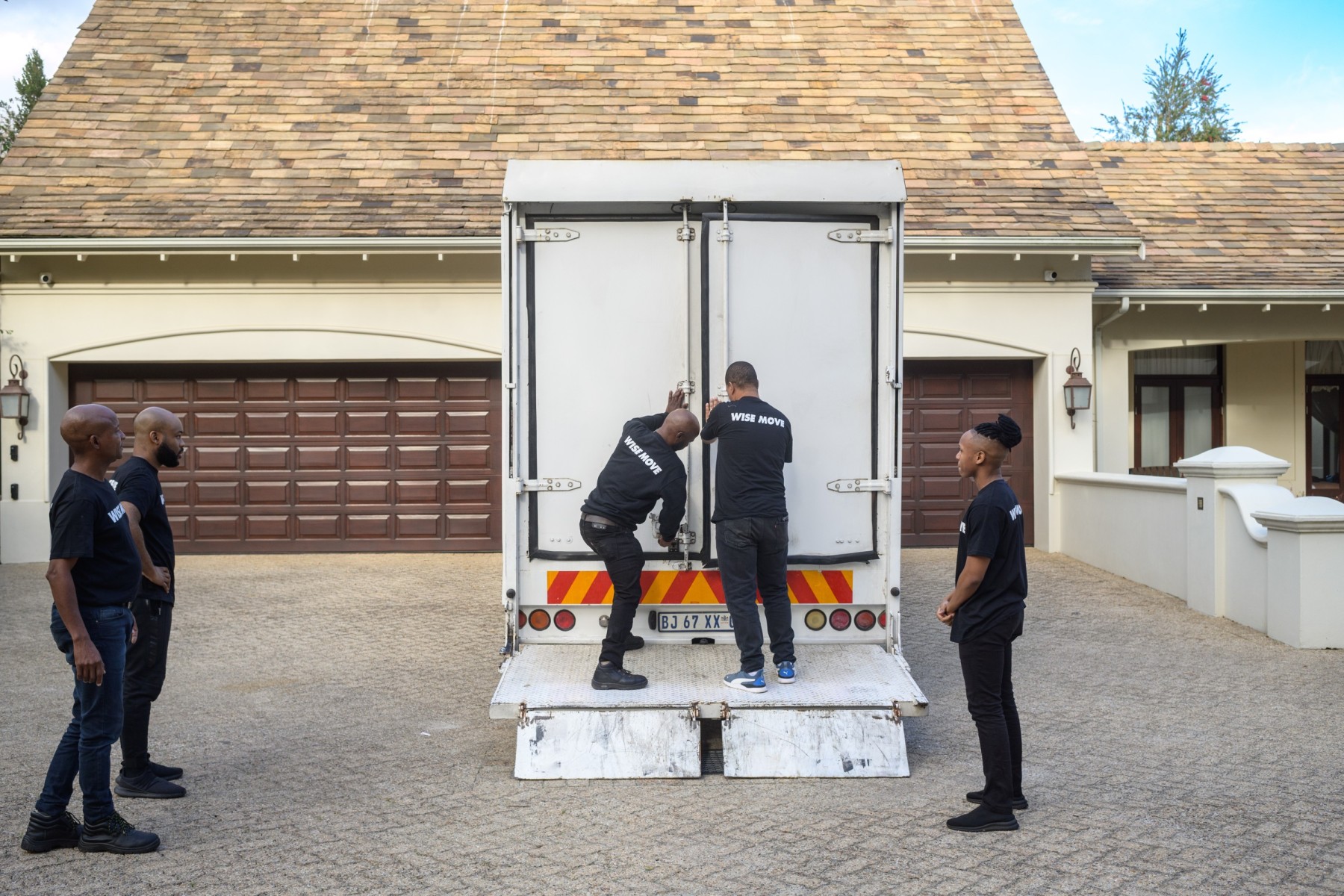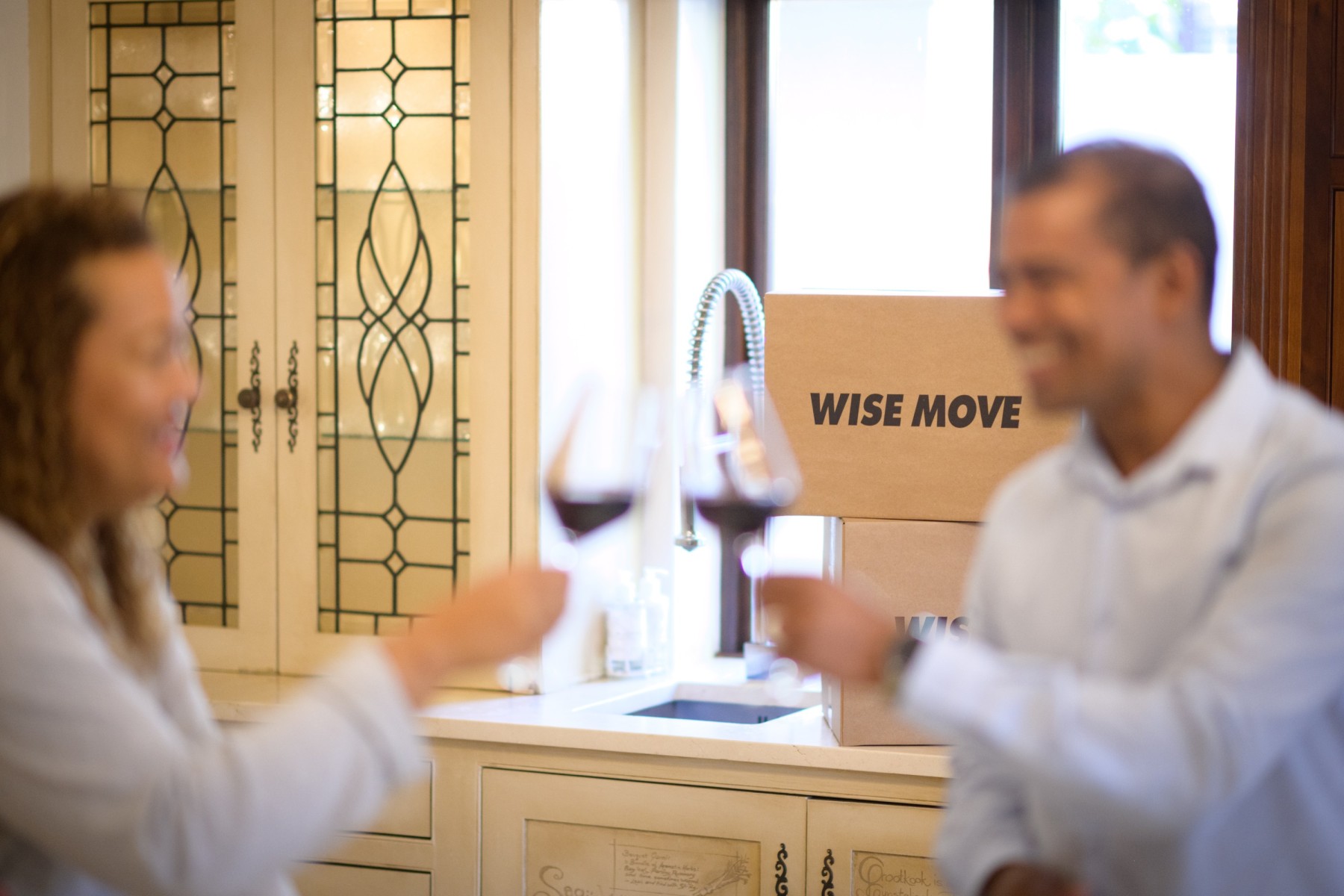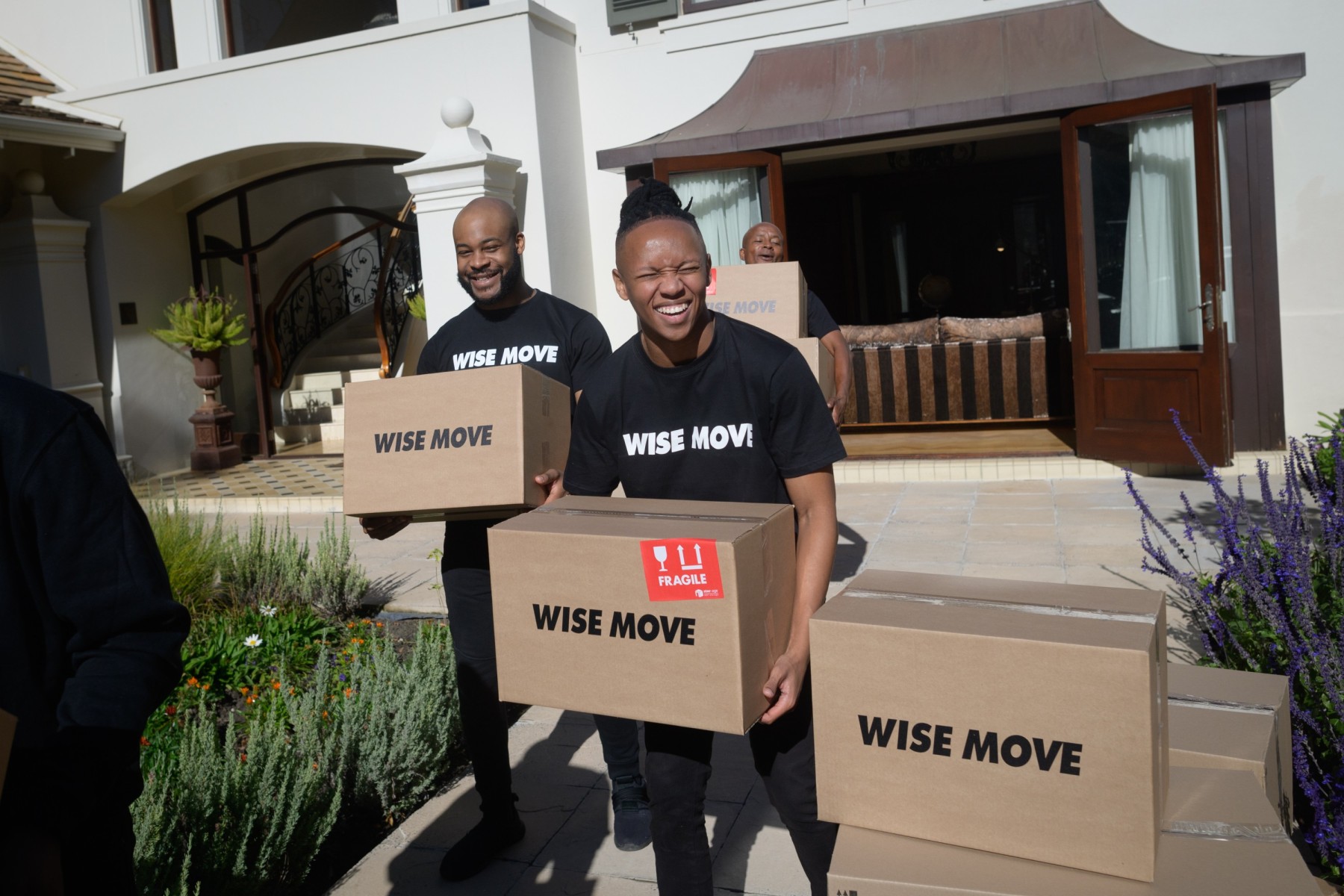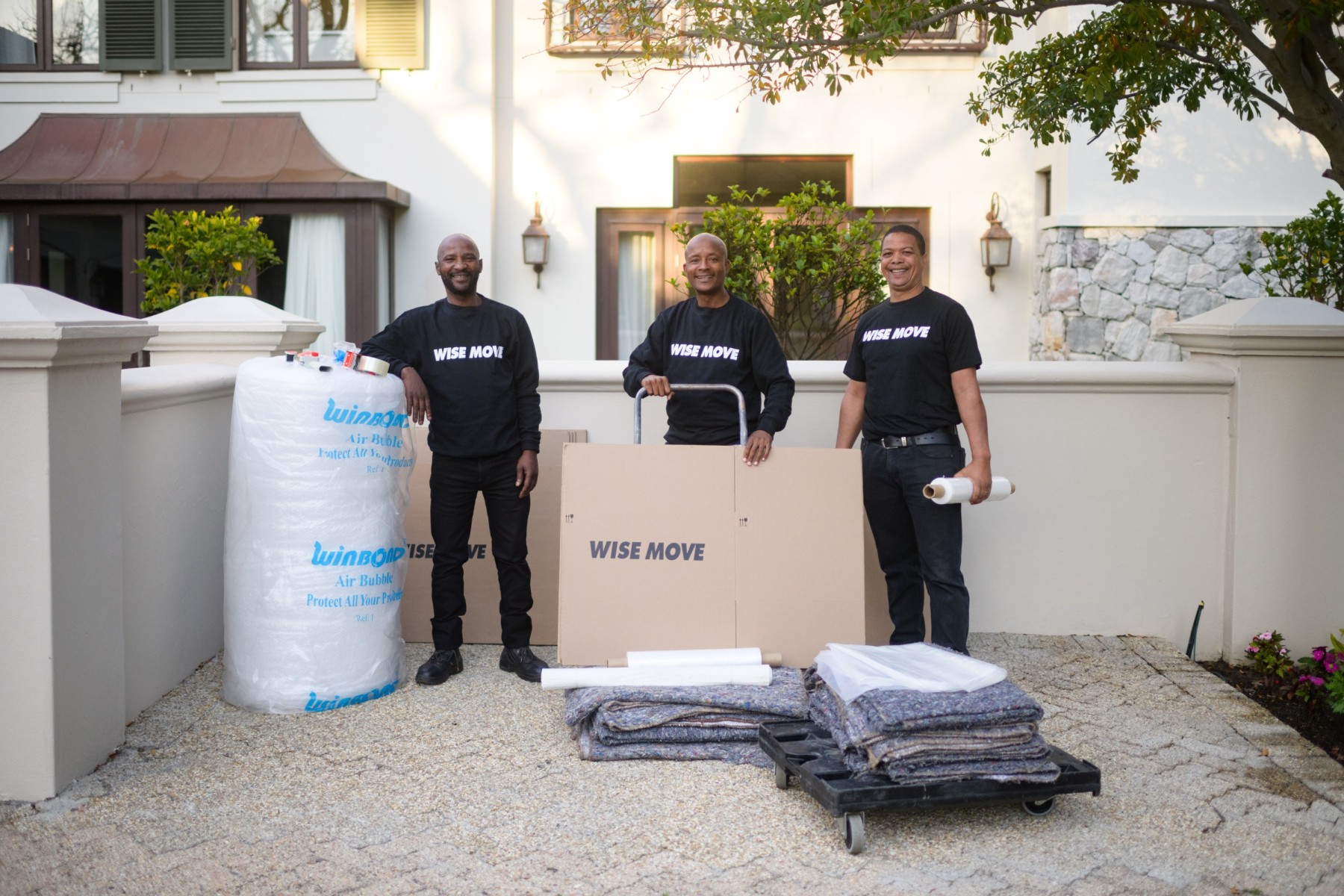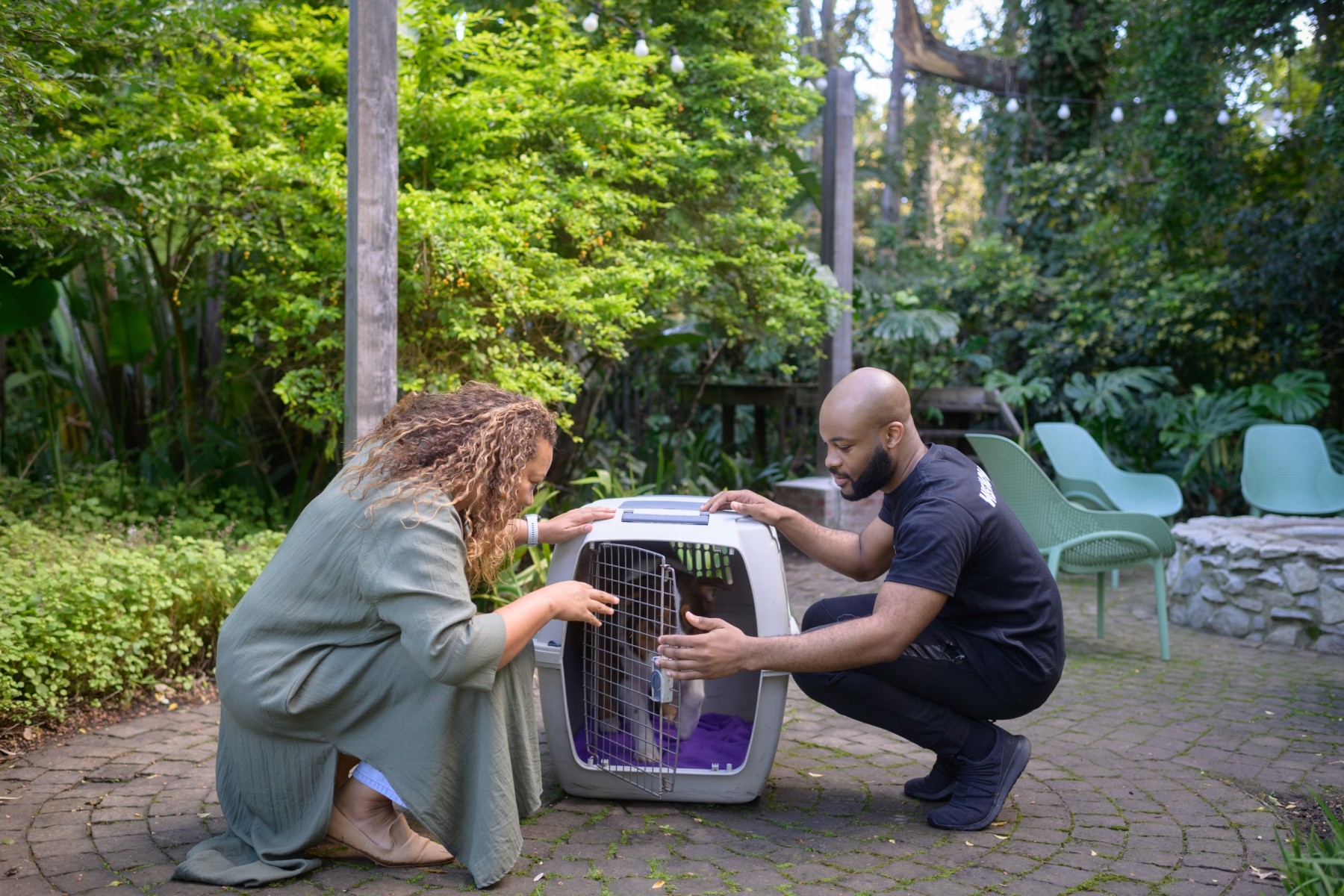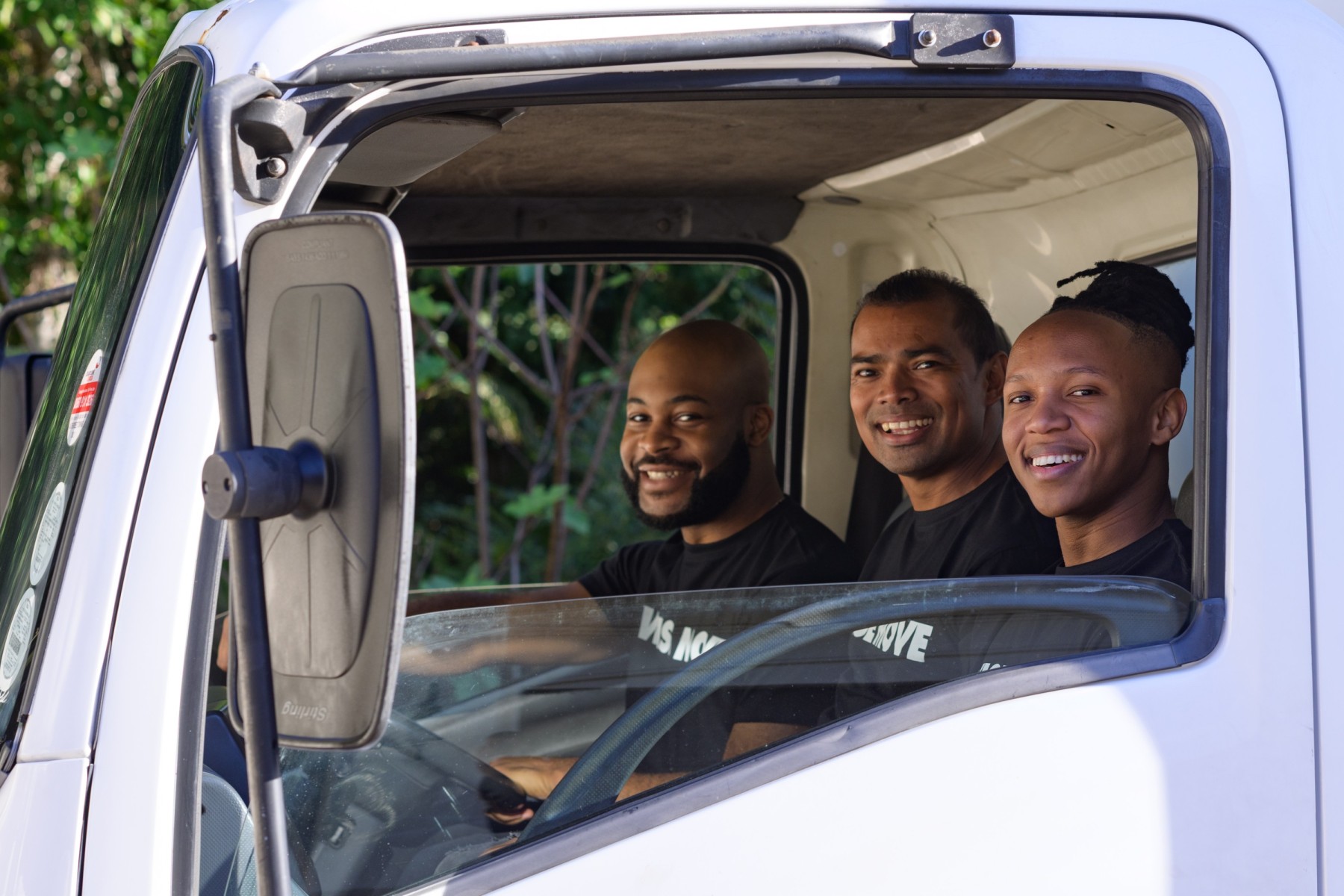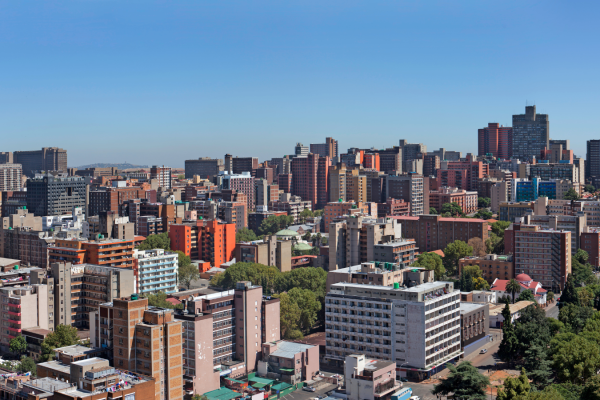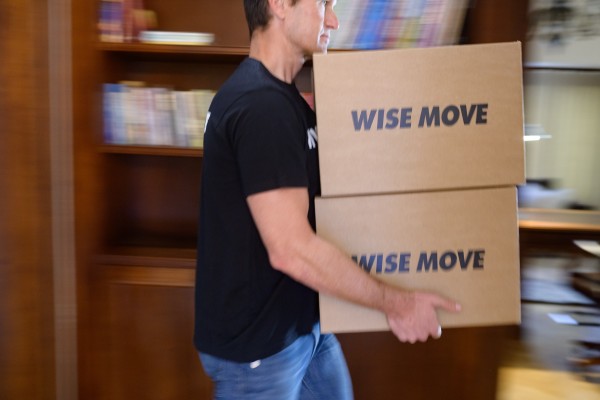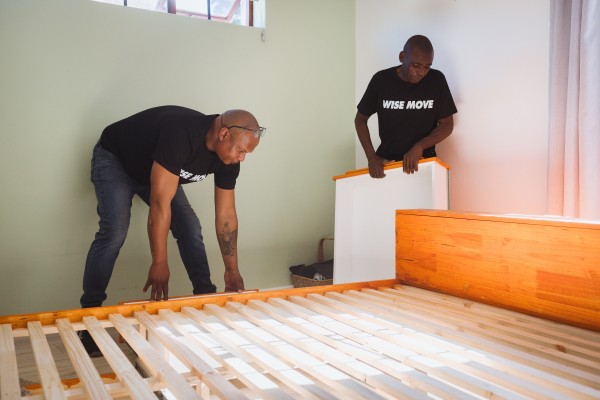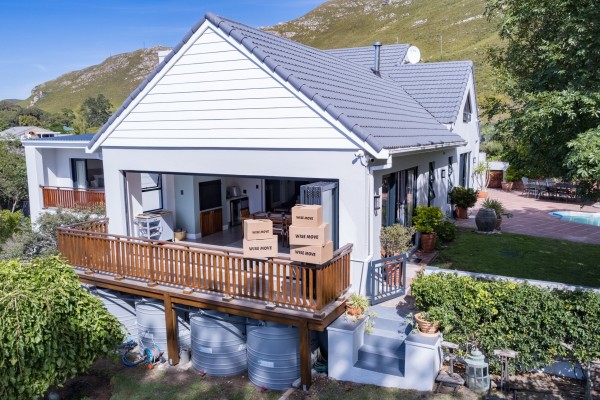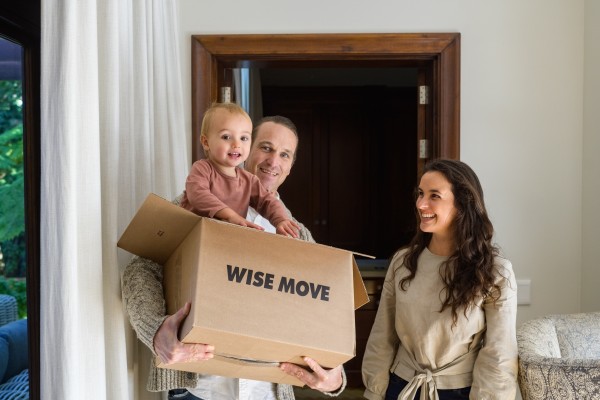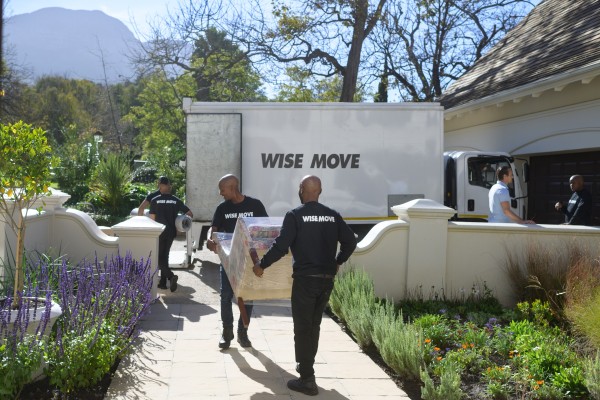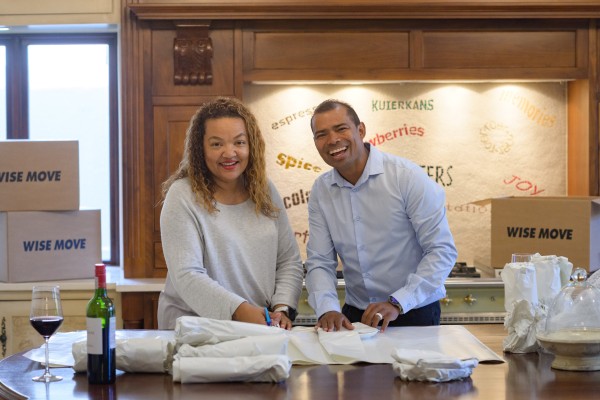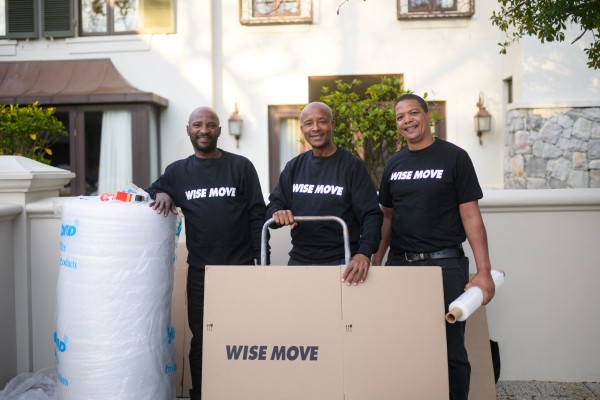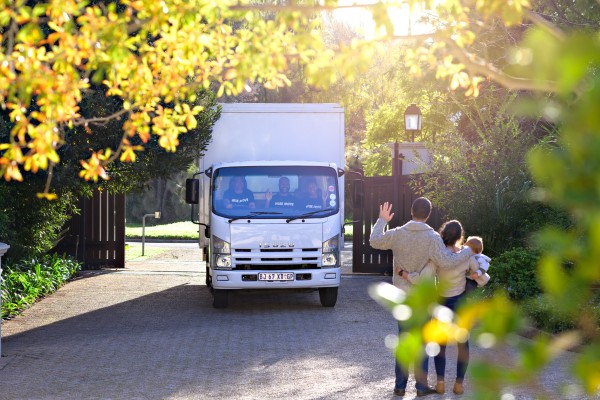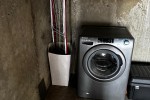Moving checklist and relocation guide in Johannesburg

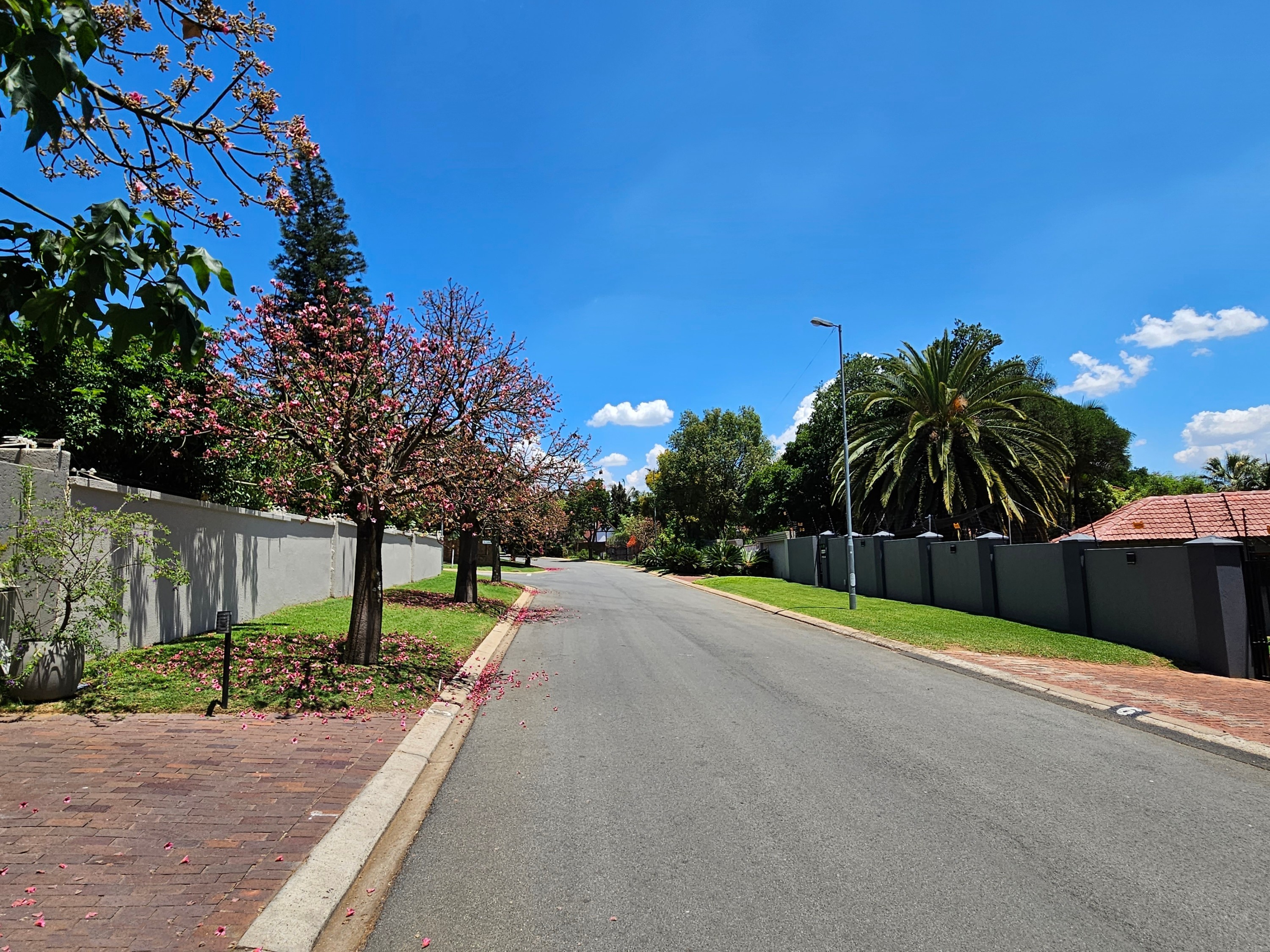
Moving between homes is inherently stressful, even when everything goes like clockwork. It’s exciting, but also disorienting and sometimes a bit scary. So, it’s well worth carefully planning your move to prevent any preventable curveballs on your moving day.
All the more so in a city like Johannesburg, where plot twists are fairly predictable, ranging from power and water outages to summertime flash floods to miniature Grand Canyons appearing on the road between your current home and your new one.
This guide provides a detailed recipe for a gloriously hitch-free moving process in Johannesburg—offering practical advice on budgeting, prepping and packing, and finding the best local moving service.
Ready? Let’s get moving …
Starting the moving process
- The first golden rule for moving in Johannesburg is no different to anywhere else. Think ahead and start planning early.
- It’s advisable to get some balls rolling 8 to 10 weeks before ‘M-Day’. Set a firm date (or, if need be, a firm week).
- Decide on your budget, after pricing the important costs.
- Book your Johannesburg moving service early to avoid missing out on the best options. Peak season is very busy in December and January as families often move between school years.
- Think through the logistics. For example, Johannesburg's erratic traffic can snarl up your move. If viable for your schedule, it may be best to choose a day on which baseline traffic will be light, such as a weekend or public holiday. Bear in mind that moving on these days might be slightly more expensive. You can compare quotes for different dates on Wise Move’s platform.
- Pack strategically when the time is right. Box your clothes, books and kitchenware room by room. If space and manpower allow, you can shift boxes or larger items to “holding areas” before move day, to prevent bottlenecks in awkward, tight spaces in your home.
- A few weeks before your move, take care of some important admin. For example, update your address on local services and utilities’ databases to ensure uninterrupted service.
- Keep a close eye on your budget and try to eliminate any surprise costs.
Johannesburg moving house checklist
Following this checklist will help guide you through your big Johannesburg move.
Ten weeks before the move
- Do your research: If you still need to decide on your new address, you’ll first need to investigate which Johannesburg suburbs are best for you. Look at which suburbs are closest to your work, schools if you have kids or key public transport links like the Gautrain. Consider the cost of living in Johannesburg, and which areas offer good value for money when it comes to rent or house prices.
- Finalise your moving budget: Include moving service costs, packing materials, deposits or connection fees for utilities.
- Book your moving team: Get quotes from Johannesburg moving companies and book a date as soon as possible to avoid paying a bit more if you book later. For a smaller move, it may work out cheaper to go for a last-minute booking, as many movers can fit you into a backload from another client’s move in the other direction. But there are no guarantees. Peace of mind is precious in itself.
- Book a storage space: If you need temporary storage, get quotes from local storage services in Johannesburg.
- Declutter: Time to Kondo your condo, so ditch anything you don’t need, use or love. If it’s rarely in use but of real sentimental value, by all means, keep it. But setting a high bar is always wise.
- Draw up a packing schedule: itemise your packing process into manageable tasks. This will make everything less daunting.
- Advise your landlord or agent about the move: If you are renting, inform them that you’re moving and schedule a date with them for the final inspection.
Six weeks before the move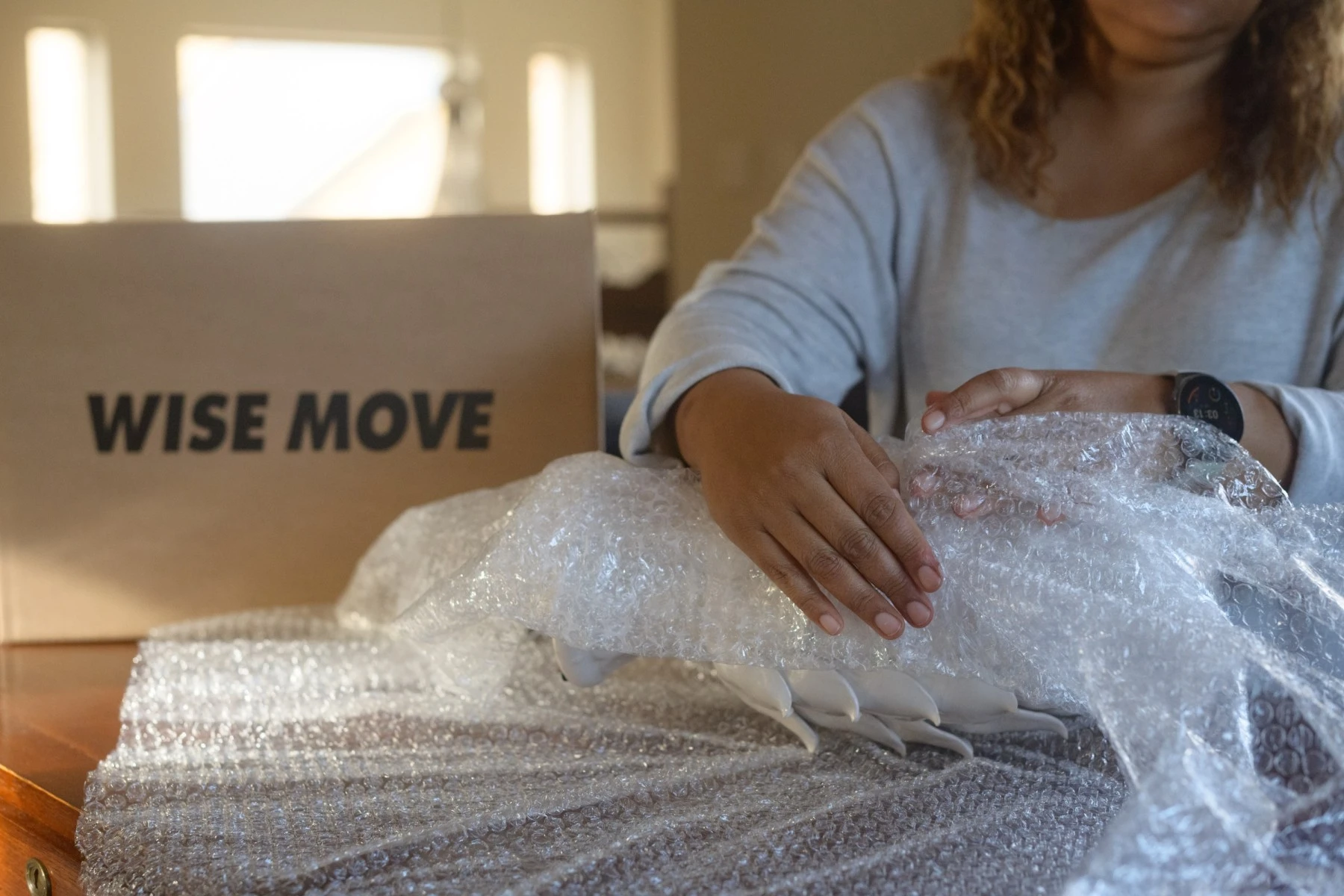
-
Start packing: A good starting point is packing up anything you won’t need before move day.
-
Place orders for your packing materials: Get everything you need to pack, including boxes, cartons, storage units, and tape.
-
Update your utilities and service providers: Tell your municipal and other service providers, from water, power and refuse collection to internet, subscriptions, that you will be moving and let them know when.
-
Update your new address with services: Make sure your bank or the official record that stores it has your new address.
-
Create a shortlist for movers of special and fragile items: Include items like artwork, electronics and other valuables, which could be moved in a special consignment.
-
Check if you need a parking permit: You may need to secure parking permits for the moving truck, perhaps in busy commercial areas like Sandton or Rosebank.
A month before the move
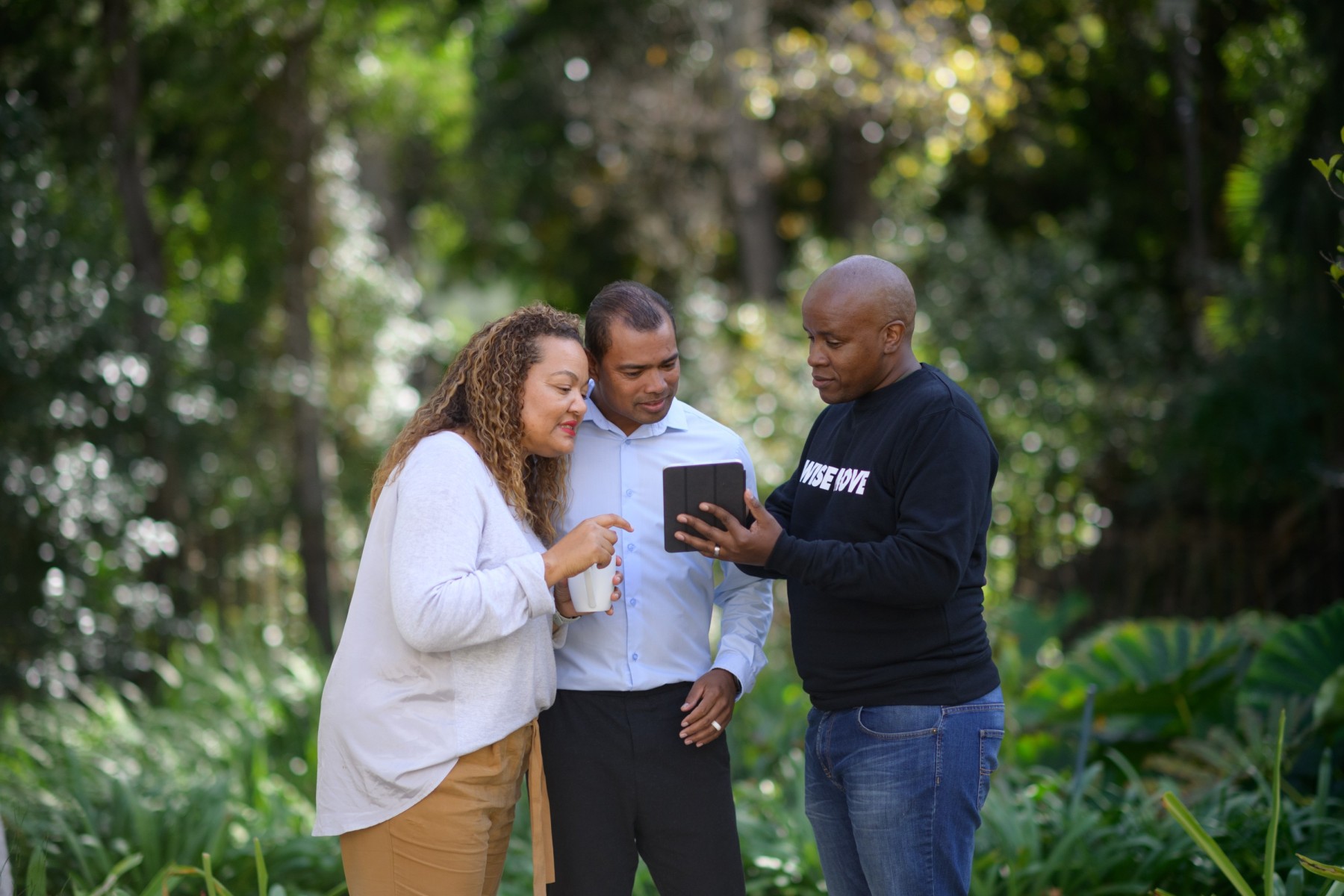
-
Make final arrangements with your moving company: Confirm the moving details and times with your moving service.
-
Book cleaning services: If you don’t employ a regular cleaner, landlords may penalise you for leaving a mess and deduct cleaning costs from your deposit at an above-market rate.
-
Consider what plans you need to make for your special loved ones: Make arrangements for pets, young children, or elderly housemates. For example, can they spend the moving day at a friend or relative’s peaceful home?
-
Inspect your new home: Pop over to your new home to fix or clean anything that needs it ahead of the move.
Two weeks before the move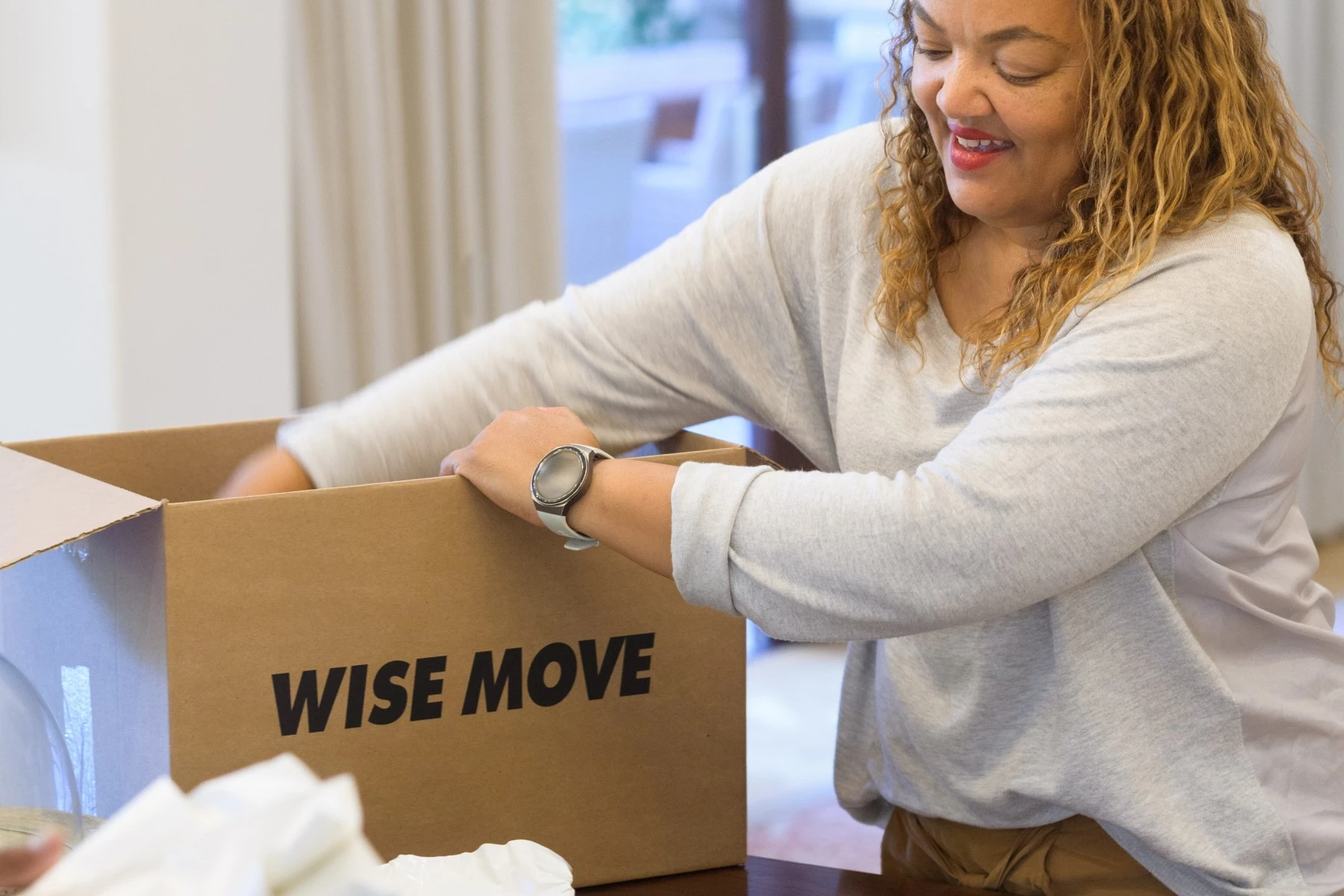
-
Keep up the packing: Box and label all the stuff you won’t need till after the move, and work on one room at a time.
-
Assign a carry bag for stuff needed on move day: Set aside toiletries, a change of clothes, and important documents. You can finish packing it at the last moment.
-
Update your address details for official records: You'll need to do this for your driver’s license and car registration. If you’re feeling very organised, you can even update your IEC voting district for the next elections.
One week before the move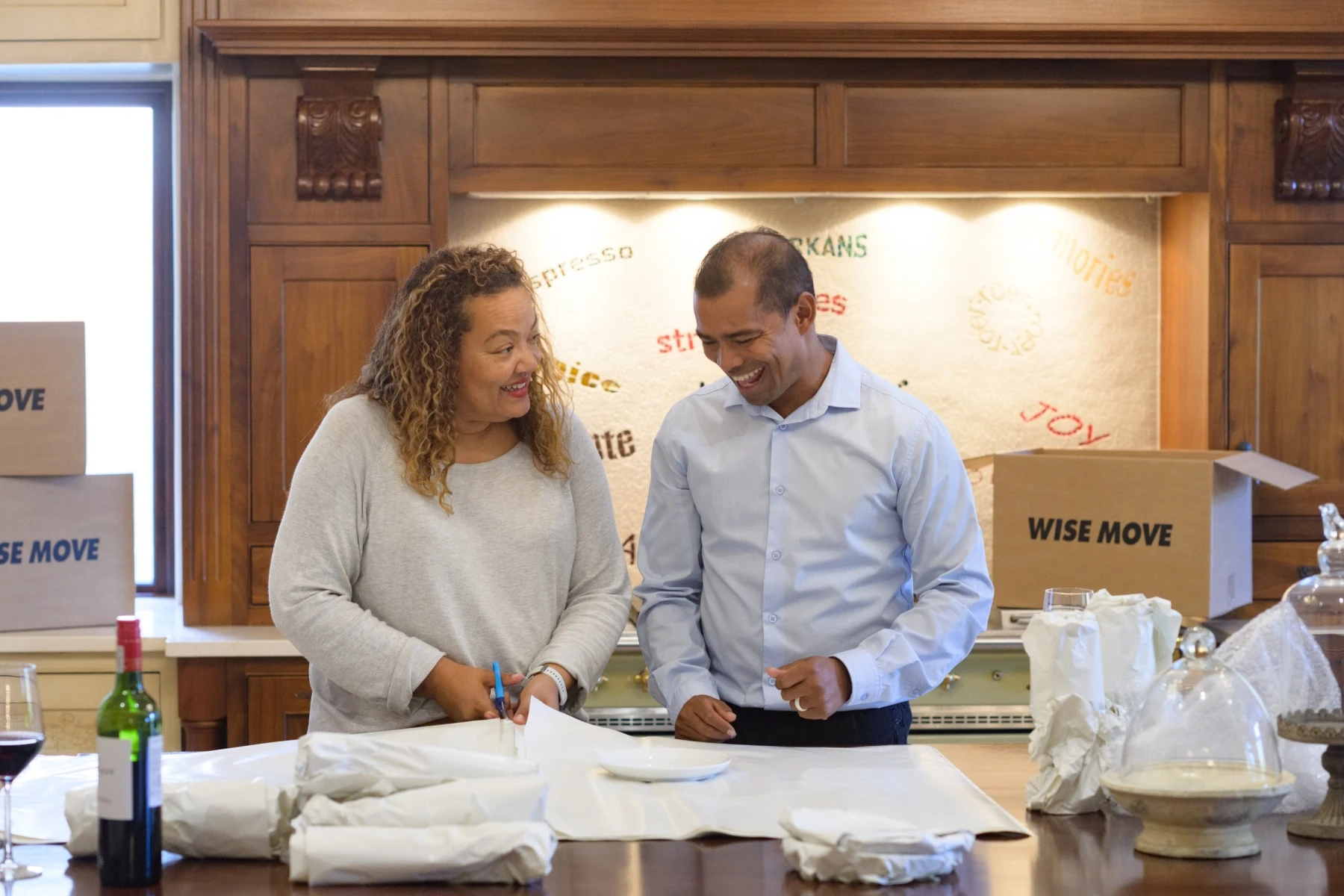
-
Final confirmation with your moving company: Make sure that all the move day details are communicated with your moving service.
-
Clean your current home: Start cleaning up your home and at least tackle the time-consuming cleaning tasks.
-
Pack up the remaining items: Now is the time to pack up all the remaining items that aren’t needed in the next week.
-
Make final arrangements: Confirm your plans for pet and/or childcare on move day.
On moving day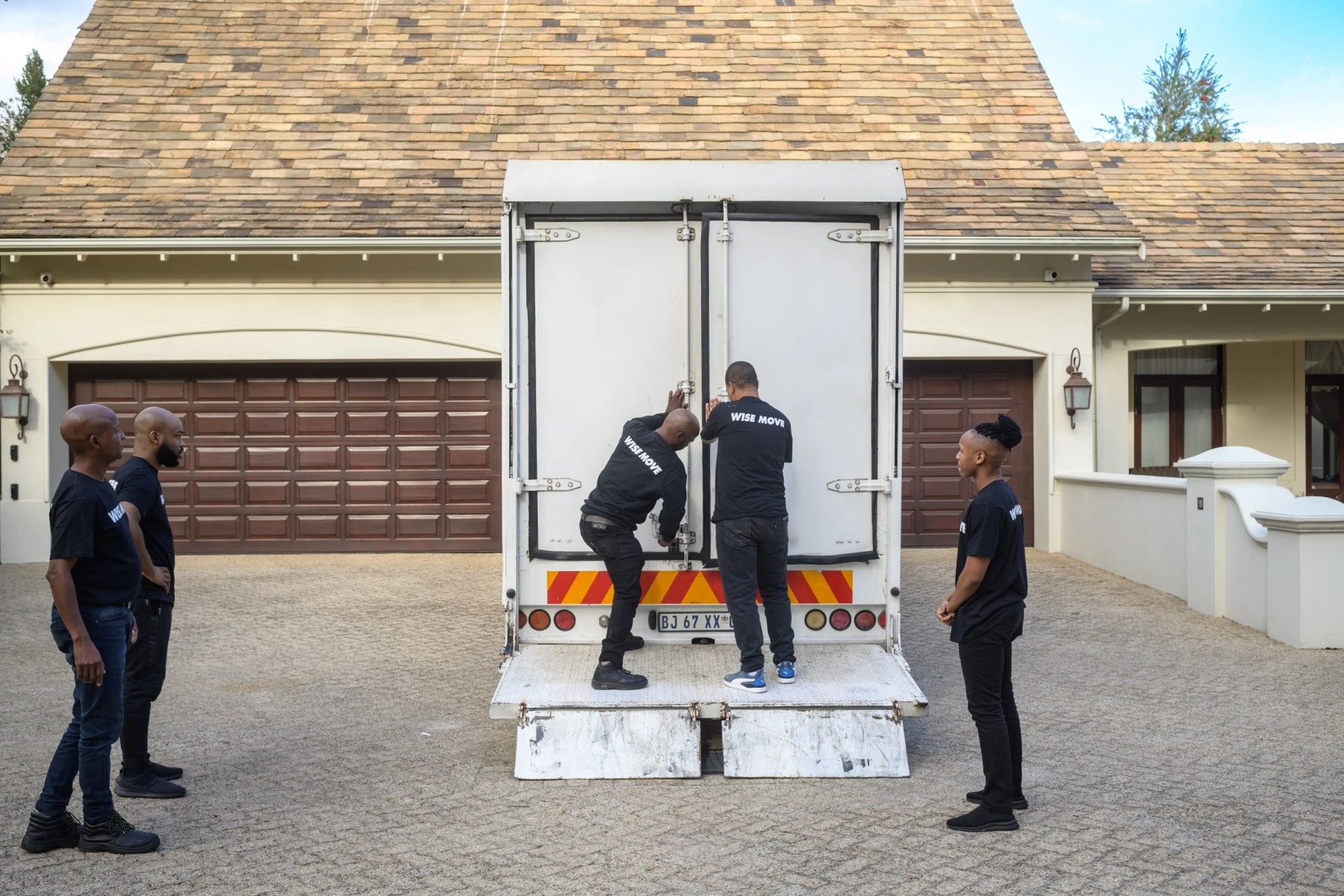
-
Set aside a big enough parking place for the movers: You can mark it out with cones or pot plants. If you live in a sectional title complex or apartment block, clear this first with the body corporate and/or superintendent.
-
Meet the movers: Be available for movers when they arrive and let them know of any last-minute changes.
-
Do a final walkthrough of your old property: Check if you’ve forgotten anything important.
-
Check your new place: When you arrive, check that the utilities are working. If not, contact the utility companies to find out why.
Settling in at your new home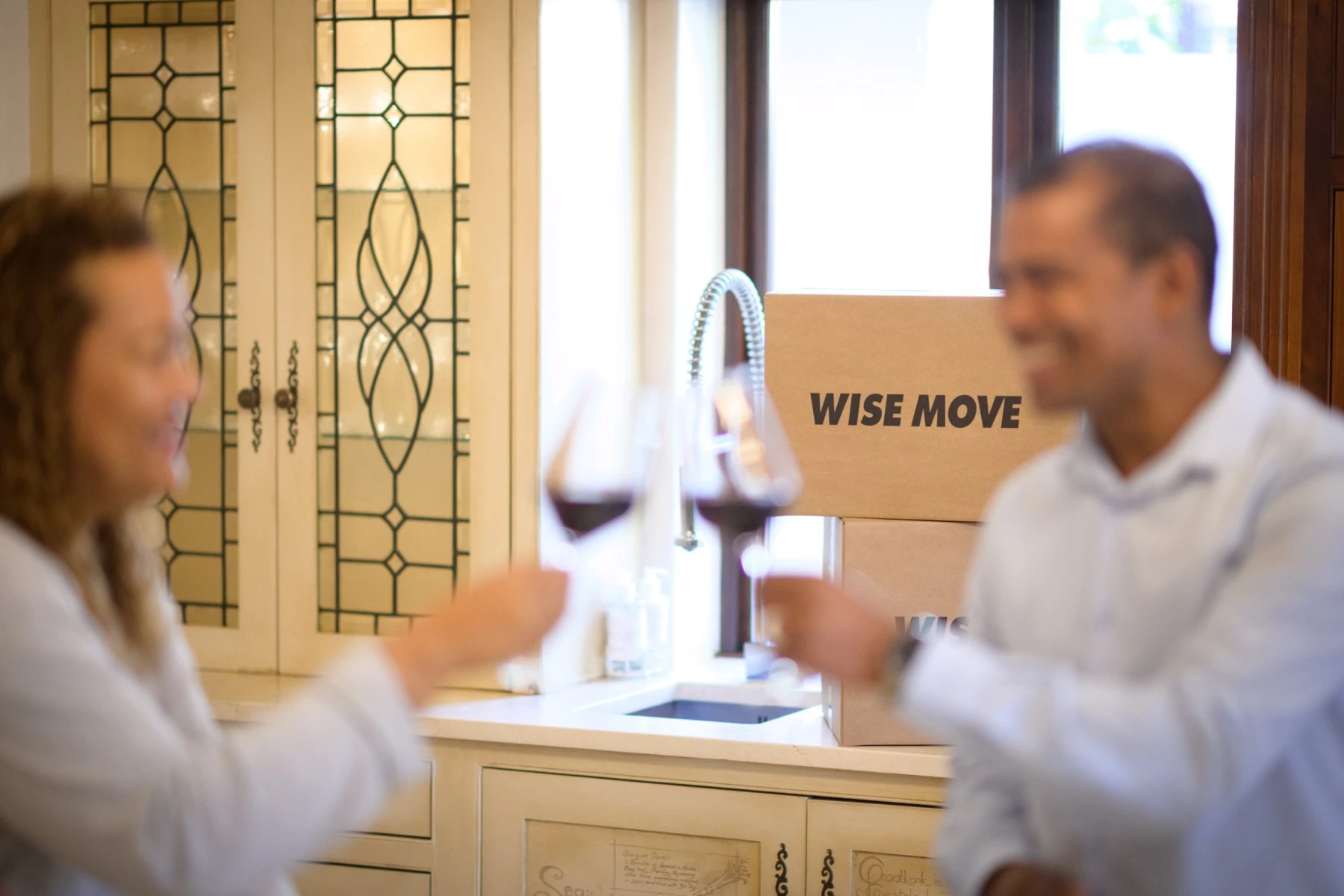
-
Unpack, unpack, unpack: This can seem a daunting and exhausting task after all the work of packing up. Be gentle with yourself. Tackle the kitchen and bedrooms first. You can unpack the rest once the place is livable.
-
Check off your itinerary: Confirm that all the boxes and furniture have arrived and have been put in the right rooms.
-
Take a stroll around the neighbourhood: This will give you a relaxing break from all the move-day drama, and give you a sense of your new surroundings.
Budgeting for your Johannesburg move
- The cost of hiring movers in Johannesburg will vary based on the total volume and, to a lesser extent, the weight of your possessions and the distance to be travelled to your new home.
- Weekend moves typically cost more, while midweek moves are generally cheaper.
- A late booking can work out much cheaper due to a backloading offer from a moving service. They will fit your load into a truck’s unused return journey from another client’s move. The certainty of booking early may be worth more than the possible savings from a last-minute booking.
- If you’re buying your new home, you’ll need to factor in costs such as property inspections, conveyancing and legal fees. If you’re selling, you should budget for marketing costs, agent fees if you’re using one, and the costs of securing electrical, beetle or other compliance certificates.
- If you’re giving up a rental lease, you should account for some deductions from your refund due to wear and tear on the property. And if you’re renting your new place, you should budget for the deposit and potentially a month or two of upfront rental payments. Other bills to consider include utility connections, packing supplies, and any parking permits you need on your moving day.
To hire a mover or not to hire? That is the question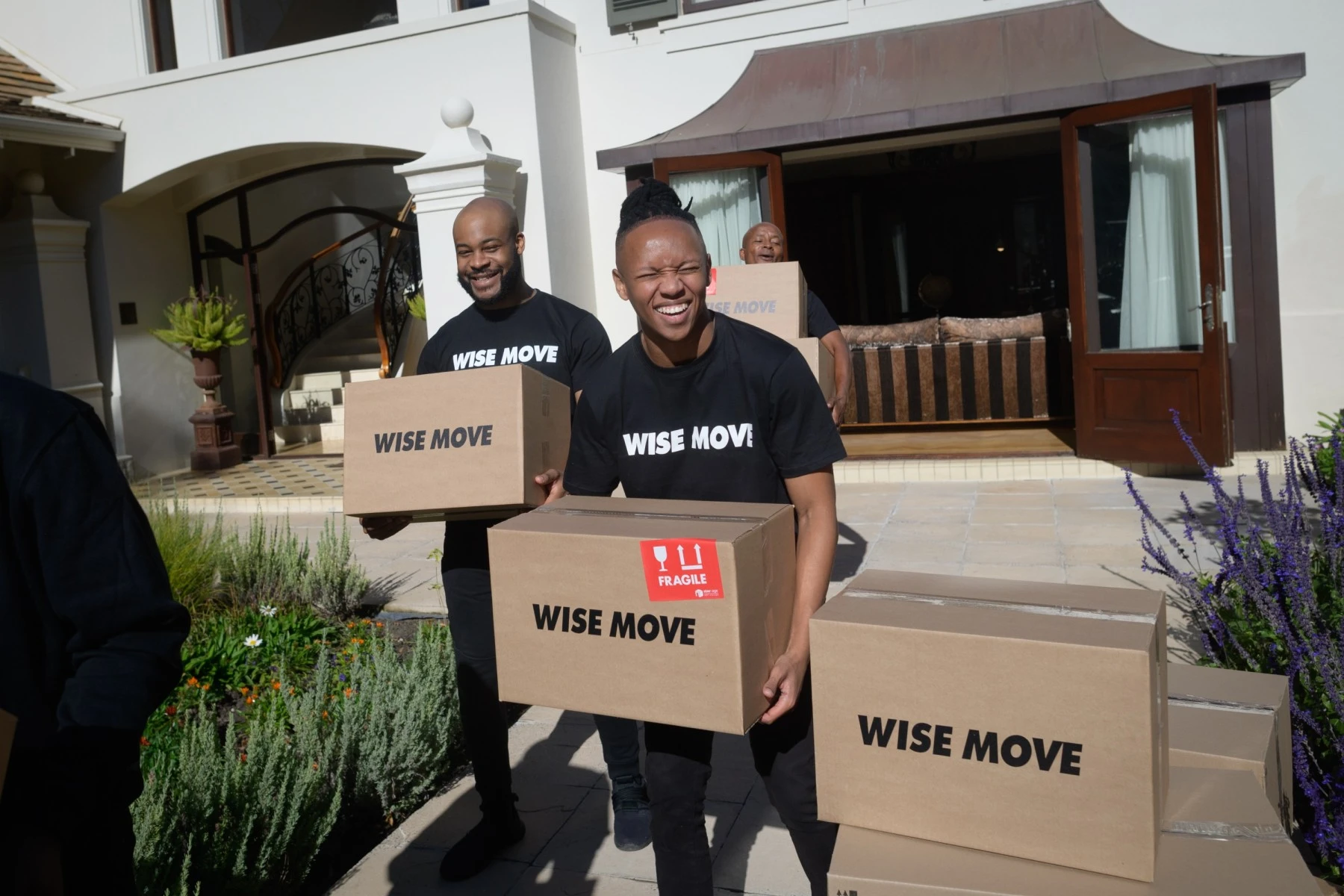
Should you hire a mover or deliver your possessions yourself—assuming your load is small enough? That can be a tricky question, involving tradeoffs between higher cost on the one hand and a higher risk of damage to your valuables and a certainty of hard physical labour on the other hand.
Insurance offered by movers is a big factor to consider—knowing you’re covered against any losses is valuable when entrusting your worldly possessions to strangers, however professional they may be. And their professionalism is in itself an advantage. They know exactly how to move everything safely.
If you do opt for a mover, there are options to choose from. Here’s a breakdown of the pros and cons of a full-service move, a dedicated load, or a shared load
|
Type of move |
Pros |
Cons |
|
Full service |
Simplicity and peace of mind. A luxury moving experience. |
Higher costs |
|
Dedicated load |
Cheaper than full service, with very predictable timing. |
More packing work and insurance paperwork than full-service. A higher carbon footprint if you don’t fill the truck. |
|
Shared load |
Lower costs & smaller carbon footprint. |
Less predictable timing than a dedicated load. |
|
DIY / Truck hire |
Likely cost-saving, the thrill of adventure. |
More stress, hard work, complexity & risk. |
If you’re going to hire a mover, make sure to compare quotes on a platform such as Wise Move, which can help you quickly book Johannesburg’s best moving services.
Packing materials and supplies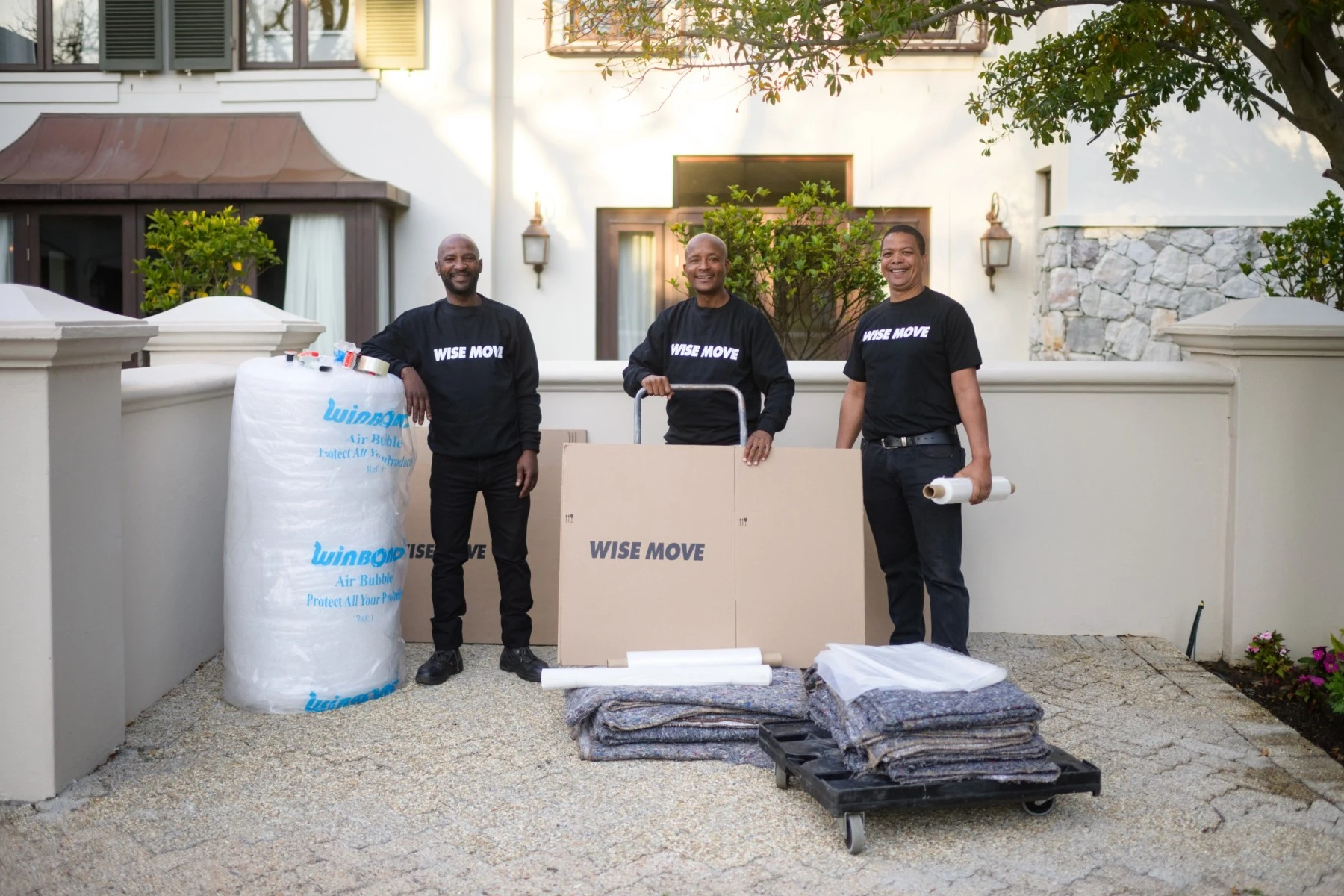
When our moving day is a long way off, we tend to tell ourselves, with breezy confidence: “And we’ll get some boxes and tape and stuff.” That’s true. But there are boxes and there are boxes. Exactly how many will you need? And what size, and what shape?
Here’s a rough guide to the quantities of packing materials you may need for moving a three-bedroom home.
How many boxes?
- 15-20 small boxes for books, kitchenware, and fragile objects.
- 15-20 medium boxes for clothes, kitchenware, and decor.
- 5-10 large boxes for linen, duvets, coats and towels.
- 2-3 wardrobe boxes for hanging clothes.
Where to get boxes
Several specialist box suppliers in Johannesburg, such as Box Shop, Box Boys and Ecobox deliver to your door. If you don’t need new ones, Takealot also supplies packs of second-hand boxes at competitive prices. You can also find these on Facebook Marketplace.
With a bit of patience and legwork, you can also source free boxes. Save all your delivery packaging, collect discarded boxes at supermarkets or recycling centres, and ask friends and family for their post-move leftovers.
How much packing tape?
- Don’t just fold your box lids, and hope everything stays inside. Everything won’t. Tape them up nicely!
- You will likely need about 6-8 rolls of tape to seal your box lids. Don’t buy too few so you don’t have to rush off to the store at the last minute.
Where to buy tape
You can get tape from any major retailer like Builders, Takealot, PNA, or your local hardware store.
How much bubble wrap and packing paper?
-
One or two rolls of bubble wrap should be enough to cushion fragile items like glassware, plates, artwork and electronics.
-
Two or three rolls of packing paper will be needed to wrap up your breakables.
Where to get them
Bubble wrap and packing paper are stocked by packaging suppliers like Box Shop, or large online retailers like Takealot. Your moving service may supply them too.
Do I need furniture pads or blankets?
- Yes, you will likely need 5-8 moving blankets to safeguard furniture, appliances and floor surfaces in both homes.
Where to get them
Ask your moving company whether they will provide furniture pads or moving blankets, or else can hire them out to you. In the unlikely event they do neither, you can order them from retailers such as Takealot and Leroy Merlin.
Do I need plastic bins?
- Maybe not essential for the move itself, but plastic bins are easy to carry, space-efficient and robust, and will prove very useful in future.
- Two or three plastic bins should do the trick.
Where to get them
Box suppliers, Builders, Leroy Merlin and Pick ‘n Pay Home all stock plastic bins.
The big clean-up to get your full rental deposit back
When you leave a home, it’s good karma to leave it perfectly clean. And if you’re a renter, it’s also good sense, because even the nicest landlords love to deduct any expense they can find from your lease deposit. Don’t give them that chance.
If you employ a cleaner, make it clear to them that this is a deep clean of all surfaces, not a routine clean.
Cleaning tips when moving out of your home
- When deep cleaning each room, start high so that debris and dust don’t fall on a surface you’ve already cleaned. Begin by dusting the ceilings, lights, vents and curtain brackets. Next, dust or wipe the walls, windows, and finally the floors.
- Your kitchen will need special attention, especially inside the stove, and both on the underside and the top of the extractor fan or stove hood. Remember to clean behind and under the fridge, which you can easily forget about if you’re leaving it behind. Scrub clean all counters, sinks, and appliances, and the tops of cupboard units.
- In the bathroom, scrub the tiles, mirrors and sinks. You can whiten up grey or mouldy grouting by applying a thick paste of water and baking powder (bicarbonate of soda), leaving it on for an hour, and then rinsing it off with water.
- Vacuum or sweep all the floors, below furniture and in hidden corners, and wipe skirting boards clean.
- Hiring a professional carpet cleaner may be necessary if any carpets are stained.
- Remove all trash or recyclables anywhere on the property or on the pavement outside. This guide to drop-off sites in your area may help you find the nearest suitable recycling depot.
Once you’re happy, take some time-stamped photos to document the state of the house when you left it.
Storage options and costs during the move process
If you don’t have time to unpack everything immediately, or if the new place simply isn’t big enough for all your stuff, then you may need to put some things into a storage facility.
- Storage prices in Johannesburg are cheaper than in Cape Town.
- Monthly rates for large units range between R450 and R1850.
- Facilities in outlying and industrial areas tend to be cheaper than conveniently located central options.
Cover your storage goods
While storage companies usually offer you standard insurance for your goods, it may be wise to supplement it with additional cover, whether provided by the company or sourced yourself.
Caring for your loved ones on moving day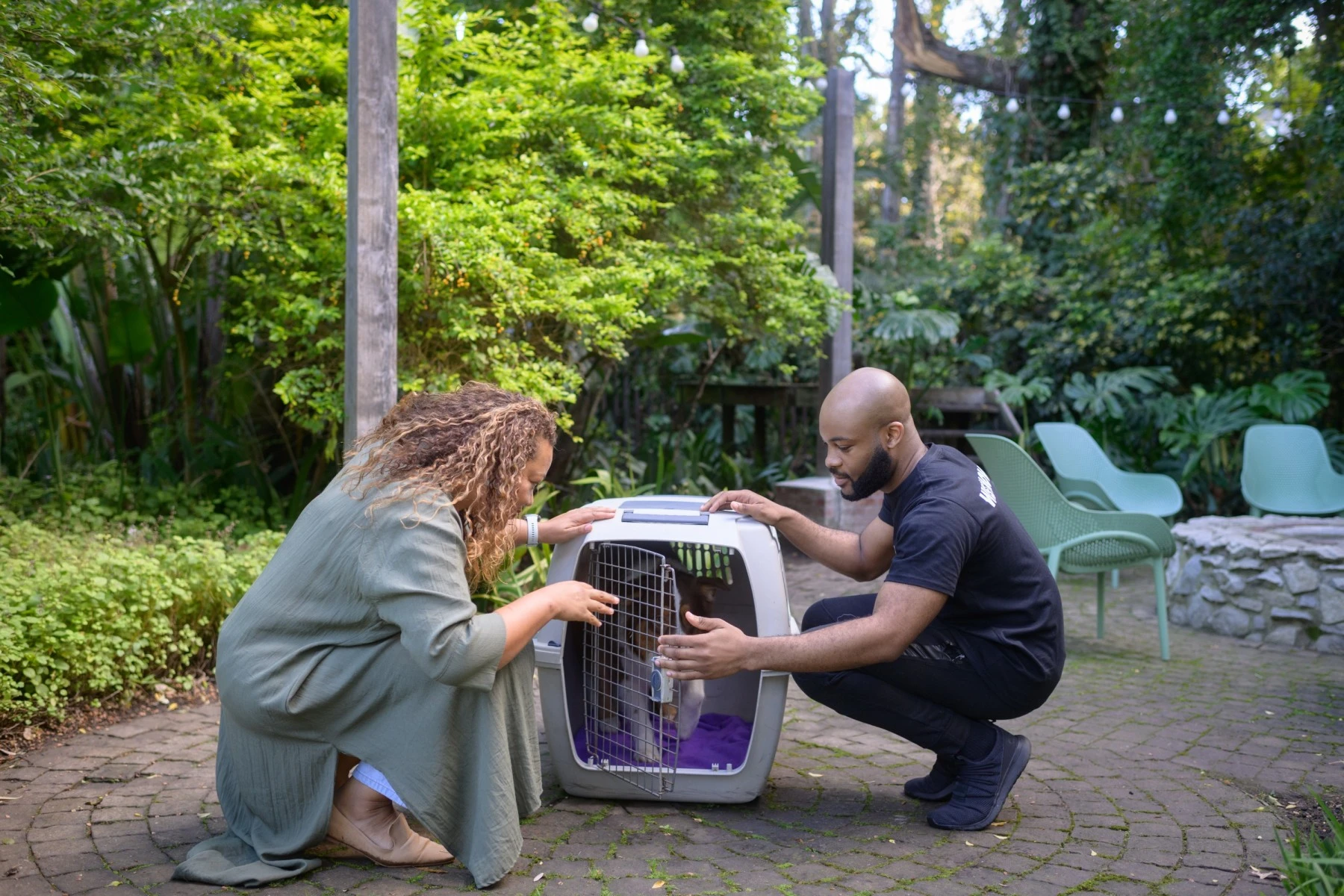
Because moving is stressful, you need to make plans to reduce disruption and anxiety for yourself, and also for kids, elderly relatives and pets.
Easing the pets’ move
Pets can be disoriented and upset by a move, particularly a long-distance one. You should pack a bag with all their essentials, such as food, water, and perhaps a cosy toy or familiar bed or blanket. If it’s a longer trip, you can use Wise Move’s pet transport booking platform to book a reliable moving company.
Keeping kids calm
Younger kids can get manic on move day, which doesn’t help the mood of parents. If you're planning a move with kids, involve them in the packing process where practical to keep them busy. On the day itself, it may be a good idea for them to play with friends or relatives until the heavy lifting is done.
Caring for elderly relatives
Moving is particularly daunting and frustrating for the elderly. If you’re moving with an older parent, maximise their comfort by ensuring they have an accessible bag with all their medication and precious items. It’s best if someone can accompany them on the move, to navigate any mobility challenges and make sure they’re OK.
Managing your disability on move day
If you are moving with a disability, the top tips are:
- Have an accessible bag containing your essentials.
- Check in advance that your new home is accessible with wider doorways or ramps where necessary.
- Knowing where local medical services are will help ease your nerves.
Choosing a trustworthy Johannesburg moving service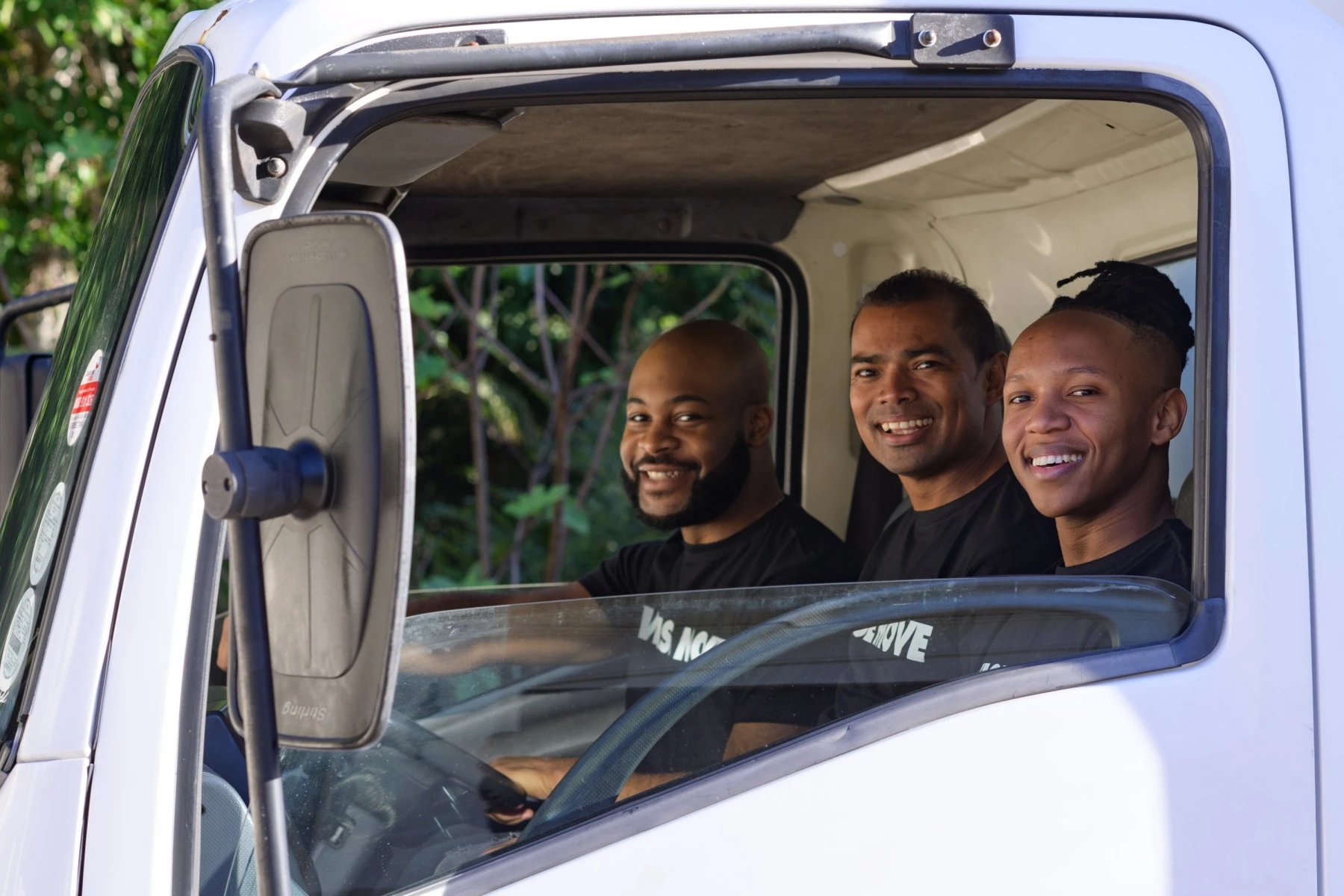
Moving in Johannesburg, whether across town or out of town, is not for sissies. That’s why finding the most trusted, best-value moving service in Joburg is essential. Using a platform like Wise Move allows you to book your move with proven and reputable movers, saving you a lot of anxiety. Don’t leave the choice to chance.
What do our customers say?



